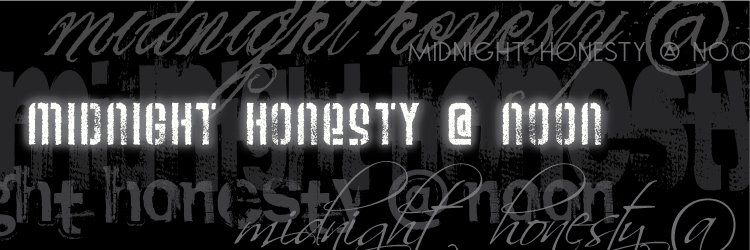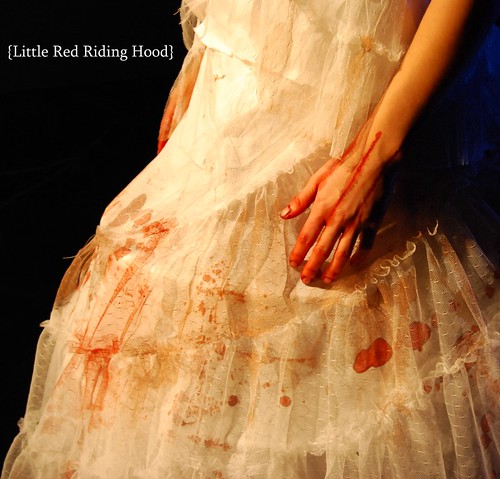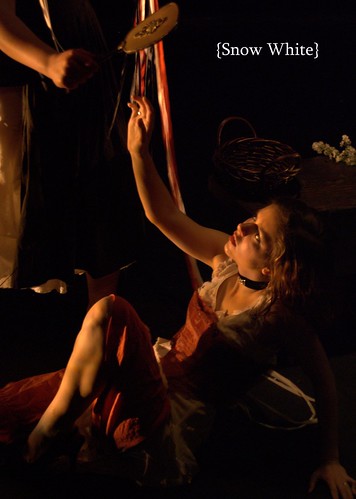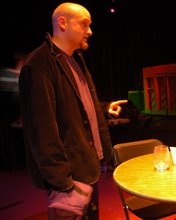Revolution for the Working Stiff
You are lucky, oh intrepid two dozen or so subscribers....
My rant of yesterday directed at the poorly conceived "backlash" piece Jonathan West pooped out over here was... not worth your time. Discretion is the better part of valor, and valorous as I am, I spiked it. Needless to say I disagree with Mr. West on most points, and his destructive tone.
But it also brought me to question why I (and by I, I mean everyone) feel the need to destroy a blog post I disagree with rather than simply state (what I feel to be) the correct position on it. I don't mean Fisking it, I mean the honest-to-god need to humiliate the moron who dared post without really reading over it to see that he was suggesting that people who want to get paid for their talent are whiners and that asking for a living wage is the equivalent of wanting a fully funded 401K and a vacation home in the Sun Belt.
After realizing I was being a douchebag I tried to go back and write a reasoned response to it, and I just couldn't. I had so much contempt for a (seemingly very nice) author that I had never met that I couldn't simply sit down and write a rebuttal to an easily rebutted snark piece.
Is it simply the anonymity of the internet? I don't know. I doubt it given that my name is all over this thing. But that leaves me with the simple truth that I am a douchebag. So I choose to officially decide that we default to the negative because tearing down is easier than building anything and that of course I am not a douchebag. (Also? We like being funny.)
Nick agrees on the rant front.
We're boring Leonard Jacobs
(Note to self: We need to have a talk at some point about where the line is between having an honest community discussion about problems, and keeping a unified positive face - also need to question Mr. Jacobs at some point about when there were Unified Theatre Theories and what they were.)
And Devilvet would like a short primer.
To wit:
So, people are clamoring for a new model? A new model for making theatre? There is a lot of diatribe about tribes. Alot.
So tell me in 250 words or less how you are going to change theatre for the better?
"But, I can't do it in just 250 words?" Well then, you're dead at the starting gate.
How are you going to change theatre? I'm not opposed to change. But, all this talk of tribes seems to me to be more of a return to the old ways (Living Theatre, Hoffman School of Byrds, Wooster Group, Judson Church)...and I like that but...
I don't need a sound bite, but I need a simplification please...it is getting a touch too pedantic for me.
Please. How? I don't need someone to tell me...please read these five books...please read my 25 part post on the issue...I need some to excite me and inspire me with their succinctness, sincerity, and simplicity.
Ah succinctness, the bane of all amateurs, and of this amateur in particular.
Before I take my noble stab at the Community Minifesto let me say this: I am not capable of changing Theatre, or Theatre in America. I am capable of changing Theatre in Austin, and I sure am going to try.
Community Minifesto
I have no changes to make to the Broadway model, the Off-Broadway Model. the Off-Off Model, or the Regional Model. I am not a part of those models. Nor is it likely I ever will be.
I live in the uncodified world of Small Theatre or Indie Theatre, and the fourth goal of my new beginning (there is no revolution if there is no paradigm) is to get it good and labeled. Audiences know labels, they trust labels, we need a label.
The first three goals of course are Community, Community, Community. In a fully integrated theatre community (first horizontally, then vertically) both capital and performing space resource deficits fall away in prominence and we begin to winnow the resource redundancies that exist. As those deficits stop preoccupying the front burners of our minds we can go back to having the creation of art at the forefront.
It will require ego deflation to accept that for instance I will design your postcards or write your press releases so you can focus on your show, while my show is 6 months off. But the freedom it will bring will make a difference in the final product.
Which is the point.
Any successful theatre in your area is good for your theatre. If it means that you have to do some scutwork so that they can get some extra scenework in? So be it. Having a community behind you as you do extra scenework will be empowering. That is tribe to me.
It's a start anyway. On Transformations we comped a member of the Vestige Group to see the show and she ran our box for the night, and The Incomparable Andrew Varenhorst (Best of Fest woooo!) ran it for a weekend. When they need a thing? I'm there. We are so often competing for resources that it's hard to remember that we're on the same team.
Is this new beginning something that happens through the Austin Circle of Theatres? I don't know. That remains in the future. Before we bring community ideas to a group that may help facilitate them, we need to have a group of people looking to be a community.









